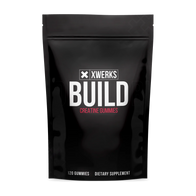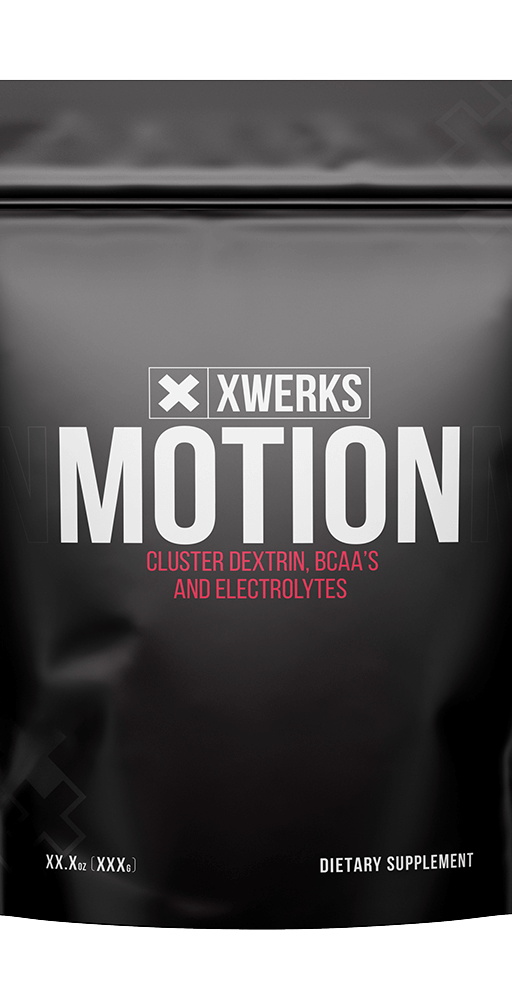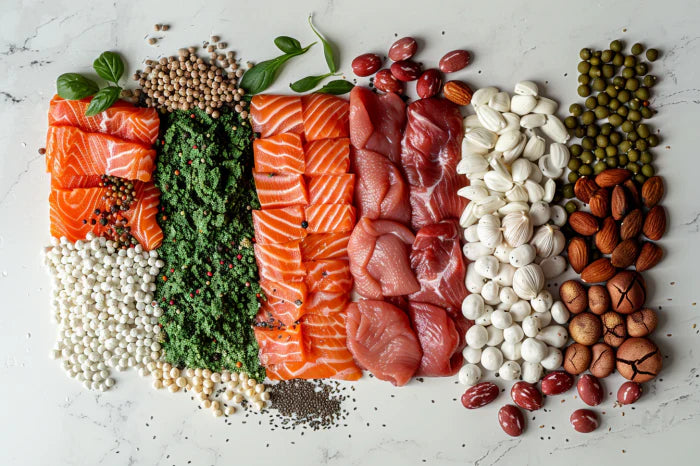Grow
Free Shipping Over $75
30 Day Guarantee
Research Backed
Description
Xwerks Grow - 100% New Zealand grass-fed whey protein isolate.
Our protein is sourced from naturally raised grass-fed cows that naturally graze on the countryside of New Zealand, one of the strictest countries in the world when it comes to dairy quality. Meaning no hormones, antibiotics or pesticides that can be passed on to you.
Whey isolate means our whey is "isolated" through micro filtration to almost totally pure protein at 25g of protein and over 6g of BCAA's per serving with no lactose, carbs or fats (Peanut Butter contains 23g of Protein, 2g fat and 2g carbs). Our unique protein formula contains only whey protein isolate and is not blended with lesser quality whey.

Grow is naturally sweetened and flavored making it truly the cleanest protein available.
- Made from grass-fed, pasture raised cows in New Zealand
- 100% whey protein isolate
- Cold pressed, non ion-exchange filtering
- No artificial sweetners, flavors or coloring
- Soy and Gluten free
- Processed acid and bleach free
- Amazing rich flavor with no aftertaste
Raw whey is rich in protein substances, called native micro fractions. These include; alpha lactalbumin, beta-lactoglobulin, glycomacropeptide, immunoglobulins, serum albumin, lactoferrin, lactoperoxidase.
Our micro filtration process helps preserve these important biological nutrients while removing unwanted fats and carbohydrates (such as lactose).
This means our whey has the following benefits and more:
- Muscle growth and repair
- Strengthens and boosts the immune system
- Anti-oxidant properties
- Easily digestible, no bloat
- Fantastic flavor
- No clumping
FAQ
WHAT CAN I EXPECT FROM USING GROW
- Increased muscle repair and recovery
- No bloated feel
- Great flavor with no after taste
- Instant mixing with no clumping
HOW MANY SERVINGS IS GROW
One bag contains 30 servings.
WHAT IS THE DIFFERENCE BETWEEN YOUR PROTEIN AND OTHERS
We have a couple blog posts that may help answer that:
The Ultimate Whey Protein Guide
Whey Protein vs Beef Protein Powder
Whey Protein Isolate vs Hydrolyzed
IS GROW GLUTEN FREE
Yes.
IS GROW DAIRY FREE
No, but it does not contain lactose due to our microfiltration process.
DOES GROW CONTAIN SUGAR
No, it is naturally sweetened with Stevia.
DOES GROW CONTAIN PEANUTS
Only Peanut Butter PR contains peanuts.
WHAT IS GROW FLAVORED WITH
Cocoa bean for Chocolate Cream, vanilla bean for Vanilla Victory and peanut butter powder and cocoa bean for Peanut Butter PR.
HOW MUCH IS SHIPPING
$5, or free for orders over $75
IS GROW KETO FRIENDLY
Yes it is, our low carb formula is perfect for anyone following the keto diet






















